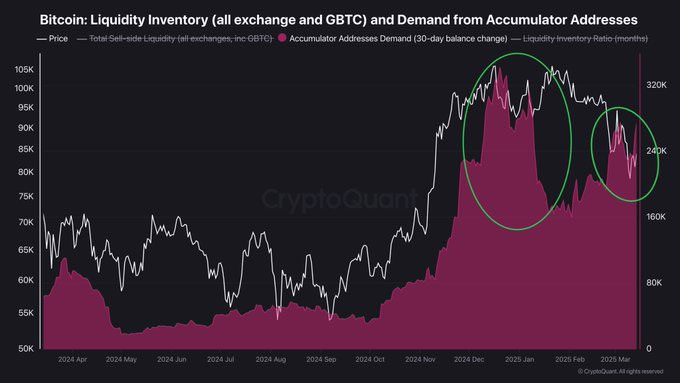Bitcoin price fell by 9.8% last week, registering its most significant weekly decline since mid-March.
The currency hit a two-week low of $8,630 early Monday, with prices last seen at $8,730—which is down more than 11% from a post-halving high of $9,960 on May 18.
The recent price drop is, in turn, causing the number of addresses holding smaller amounts of Bitcoin to rise.
The number of unique addresses that are holding at least 0.01 BTC (approximately $87 at current price) rose to a new high of 8.47 million on Sunday, according to blockchain intelligence firm Glassnode.
At the same time, the number of addresses holding at least 0.1 BTC (roughly $870) rose to a lifetime high of over 3 million households on Friday.
Some believe the increased demand during the price dip may be associated with the idea that Bitcoin could repeat history by charting a price rally over the next 12 months.
The cryptocurrency experienced a 30% pullback in the four weeks that followed its second reward halving on July 9, 2016. However, the decline was erased in the months that followed, and prices rallied to record highs by March 2016.
“The price pullback was expected, and the long-term bias remains bullish,” said QCP Capital’s co-founder and managing director Darius Sit. “We would accumulate if prices drop to the $6,000-$8,000 range.”
Of course, the number of small addresses doesn’t necessarily represent new individual investors because a single person can hold cryptocurrency in more than one address. On top of that, exchanges and custodial services also hold Bitcoin in multiple addresses.
“Wallet management systems of virtual asset service providers have become more complex and granular. Their wallet clusters include more small wallets for security,” said Ju.
Even if small investor participation has been increasing, it’s unlikely to have a significant impact on Bitcoin price, as the market is still dominated by large players, which are typically known as “whales.”
On the flip side, the number of addresses holding at least 10,000 BTC and 1,000 BTC have gone down over the last two weeks, according to Glassnode.
>> Persisting Problems: Will Blockchain Be Used in the Next US Election?
What’s more, options market activity is suggesting a more profound price drop could be in the offing in the near-term.
“Traders are buying out-of-the-money puts,” said Head of Digital Assets at Swissquote Bank Chris Thomas.
A put option is a bearish bet on the cryptocurrency, and a call option represents a bullish bet, while an out-of-the-money put option has a strike price that’s lower than the market price of the underlying asset.
Thomas said he expects Bitcoin to move toward the $8,000–$8,200 range in the short-term, which looks likely, as the cryptocurrency has breached a trendline rising from March lows.
Bitcoin fell by 5% on Monday, going against the support of the 2.5-month-long bullish trendline.
“However, the relative strength index is neutral,” Yuriy Mazur, head of data analytics at cryptocurrency exchange CEX.IO, told CryptoX. “There is no clear understanding where BTC will go, currently. It may either retrace back to $6,500 or reach $10,000. We may get a clear indication of the further direction in the nearest days.”
The immediate bearish case will weaken if Bitcoin price rises above Sunday’s high of $9,310 on the back of strong volumes. However, it may take a convincing move above $10,000 to restore the bullish trend.
Featured Image: DepositPhotos © ulchik74




